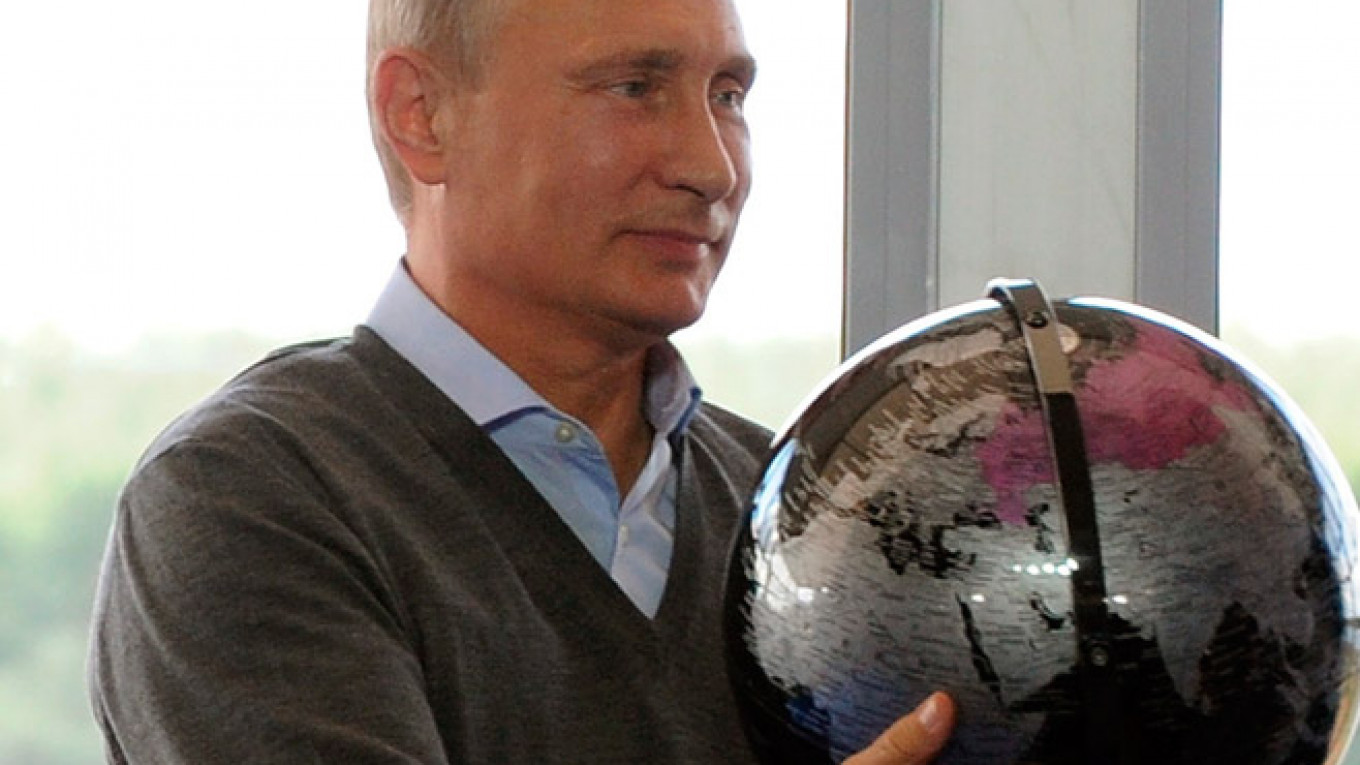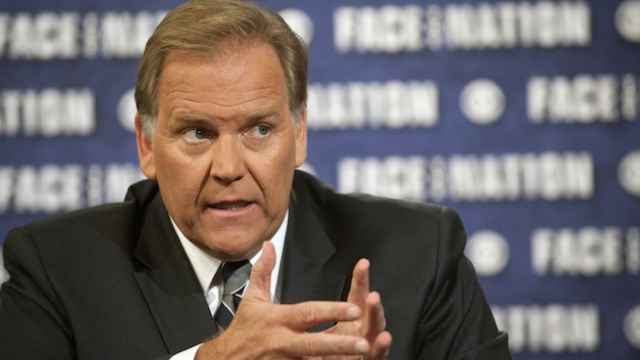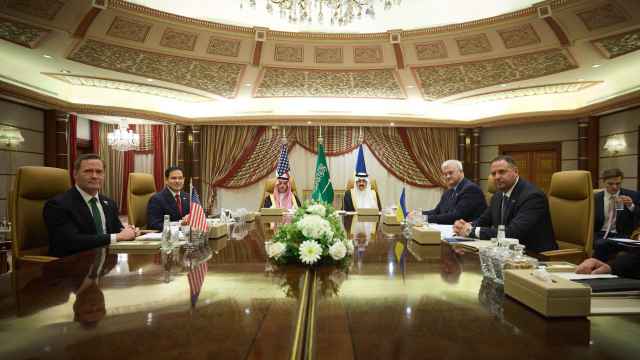President Vladimir Putin called on Sunday for immediate talks on "statehood" for southern and eastern Ukraine, although his spokesman said this did not mean Moscow now endorsed rebel calls for independence for territory they have seized.
The Kremlin leader's remarks, which follow a feisty public appearance in which he compared the Kiev government to Nazis and warned the West not to "mess with us," came with Europe and the United States preparing new sanctions to halt what they say is direct Russian military involvement in the war in Ukraine.
Ukrainian troops and local residents were reinforcing the port of Mariupol on Sunday, the next big city in the path of pro-Russian fighters who pushed back government forces along the Azov Sea this past week in an offensive on a new front.
Talks should be held immediately "and not just on technical issues but on the political organization of society and statehood in southeastern Ukraine," Putin said in an interview with Channel One state television, his hair tousled by wind on the shore of a lake.
Moscow, for its part, he said, could not stand aside while people were being shot "almost at point blank."
Putin's use of the word "statehood" was interpreted in Western media as implying backing for the rebel demand of independence, something Moscow has so far stopped short of publicly endorsing.
But Putin's spokesman, Dmitry Peskov, said there was no new endorsement from Moscow for rebel independence. Asked whether Novorossia, a term pro-Moscow rebels use for their territory, should still be part of Ukraine, Peskov said: "Of course."
"Only Ukraine can reach an agreement with Novorossia, taking into account the interests of Novorossia, and this is the only way to reach a political settlement."
Rebels have rallied behind the term Novorossia since Putin first used it in a public appearance in April. Putin called it a tsarist-era term for land that now forms southern and eastern Ukraine.
Ukrainians consider the term deeply offensive and say it reveals Moscow's imperial designs on their territory.
Moscow has long called for Kiev to hold direct political talks with the rebels. Kiev says it is willing to have talks on more rights for the south and east, but will not talk directly to armed fighters it describes as "international terrorists" and Russian puppets who can only be reined in by Moscow.
The deputy leader of the rebel Donetsk People's Republic, Andrei Prugin, said he was due to participate in talks in the Belarussian capital, Minsk, on Monday. Past talks by a so-called "contact group" involving Moscow, Kiev and rebels have covered technical issues like access to the crash site of a Malaysian airliner shot down in July, but not political questions.
A Message from The Moscow Times:
Dear readers,
We are facing unprecedented challenges. Russia's Prosecutor General's Office has designated The Moscow Times as an "undesirable" organization, criminalizing our work and putting our staff at risk of prosecution. This follows our earlier unjust labeling as a "foreign agent."
These actions are direct attempts to silence independent journalism in Russia. The authorities claim our work "discredits the decisions of the Russian leadership." We see things differently: we strive to provide accurate, unbiased reporting on Russia.
We, the journalists of The Moscow Times, refuse to be silenced. But to continue our work, we need your help.
Your support, no matter how small, makes a world of difference. If you can, please support us monthly starting from just $2. It's quick to set up, and every contribution makes a significant impact.
By supporting The Moscow Times, you're defending open, independent journalism in the face of repression. Thank you for standing with us.
Remind me later.






